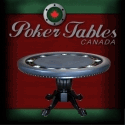Many gambling historians make the error of over-emphasizing on the idea that in the early days, cheating was a frequently encountered practice. What is even more confusing – if not downright disturbing – is that some of the authors promote the idea that the casinos or poker establishments of that period would even allow players to cheat, providing that they were able to do it unnoticeably.
There is no denying the fact that cheating was common during minor poker sessions between relatively unknown players. However, this does not apply to high stakes poker games played in the reputable gambling establishments of the time.
The main gambling ideologies
It is necessary to point out that during the evolution of the legal gambling in the U.S., 3 main groups with considerably dissociated perceptions existed and had a strong influence over the practice. The first group was referred to as square gamblers, meaning the ones who were strongly opposing cheaters and their unorthodox methods. The second were of course the cheaters or, as they were originally called, the crooked gamblers. Lastly, the final group that exercised an impact on the fate of gambling was the reformers who supported the banning of this practice and the outlawing of casinos.
Gambling in the Old West
Quite frequently gambling historians erroneously associate the Old West gambling with crooked practices. While the saloon parlor in small, unlawful towns were typically the location of gambling related shootouts, virtually all the fancy, large casinos were managed by square owners.
Once the cheaters were caught partaking in illegal procedures, they were thrown out of the establishment and had their names printed in the local paper to alert other players and casino owners. Then of course, they had to relocate to a different town, cheat, get caught, rinse and repeat. But, at the same time, certain square gamblers had more drastic methods of dealing with crooked gamblers that involved the smoking barrel of a sawed off shotgun. Overall, the legislation was never too permissive with crooked gamblers in the Old West.
Gambling post World War II
During the 1940s when the anti-gambling legislation passed in numerous states, the mafia owned most gambling establishments. You might expect this to mean that 99% of the casinos were crooked, but the truth is that the mob preferred to remain square. The reason for this consists of the fact that the profits of a casino with a square gambling reputation are infinitely larger compared to a disreputable one. Mafia bosses who owned casinos were forced to relocate their business to the only state with legal gambling in that period, Nevada. However, the square over crooked business practice is something that never changed.
Final considerations
Successfully cheating in a game of high stakes poker is so difficult that most players are not tempted to try. Considering that the amount of skill required to fool 6-7 highly experienced players as well as the bodyguards of the gambling establishment are madly high and the risk of getting caught are even higher, cheating in high stakes poker history was almost as infrequent as today, in the era of top notch surveillance technology.


Except for the fact that 7 marked decks were pulled from the 50,000$ entry HORSE event at the WSOP a few years ago, I might agree with you. But if people are still willing to cheat in one of the highest price tournament in a casino with some of the best surveillance, they are willing to cheat anywhere.
Substances to mark cards. Players cheating online. It’s still ripe with cheats and always will be as long as there is big money involved and humans.